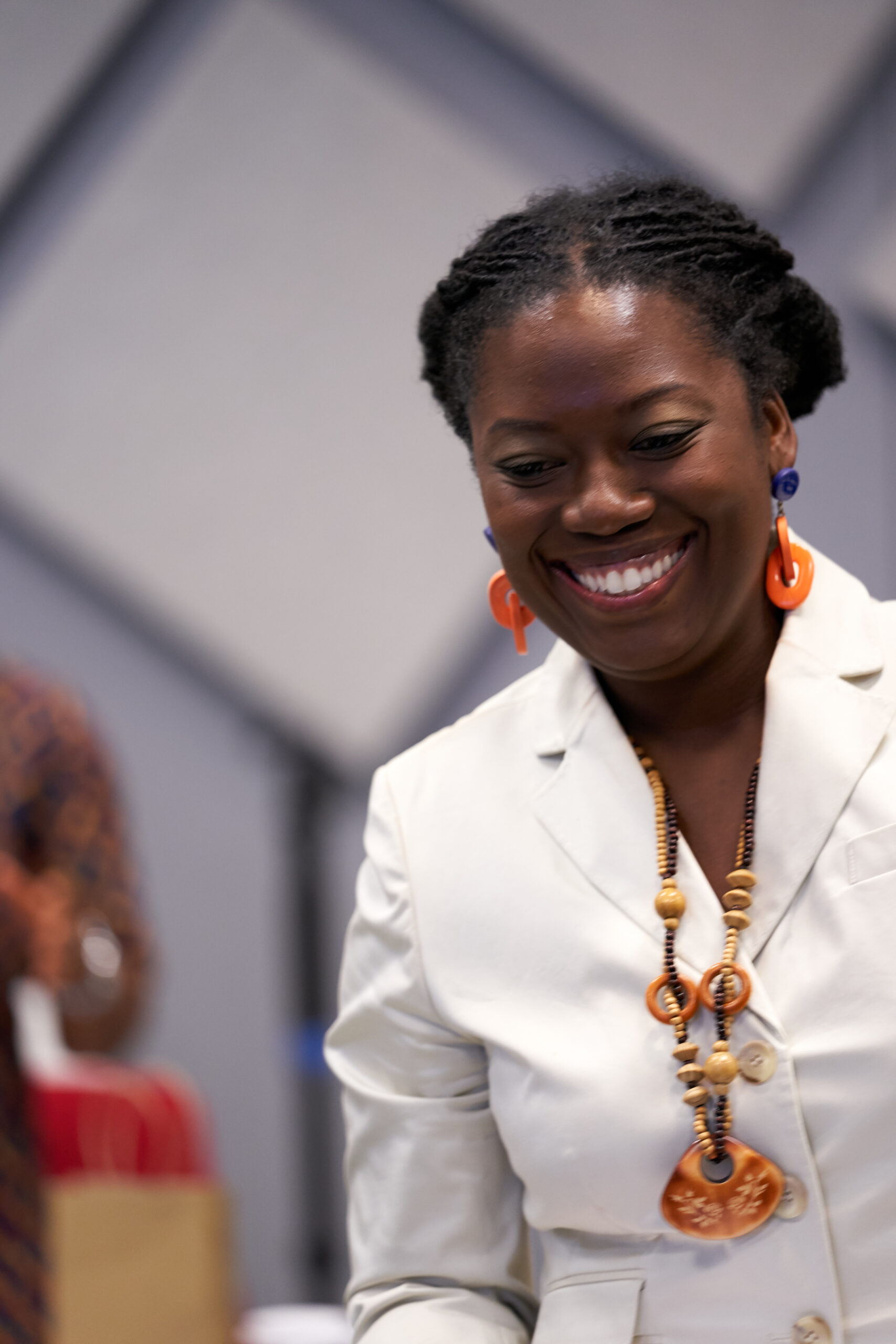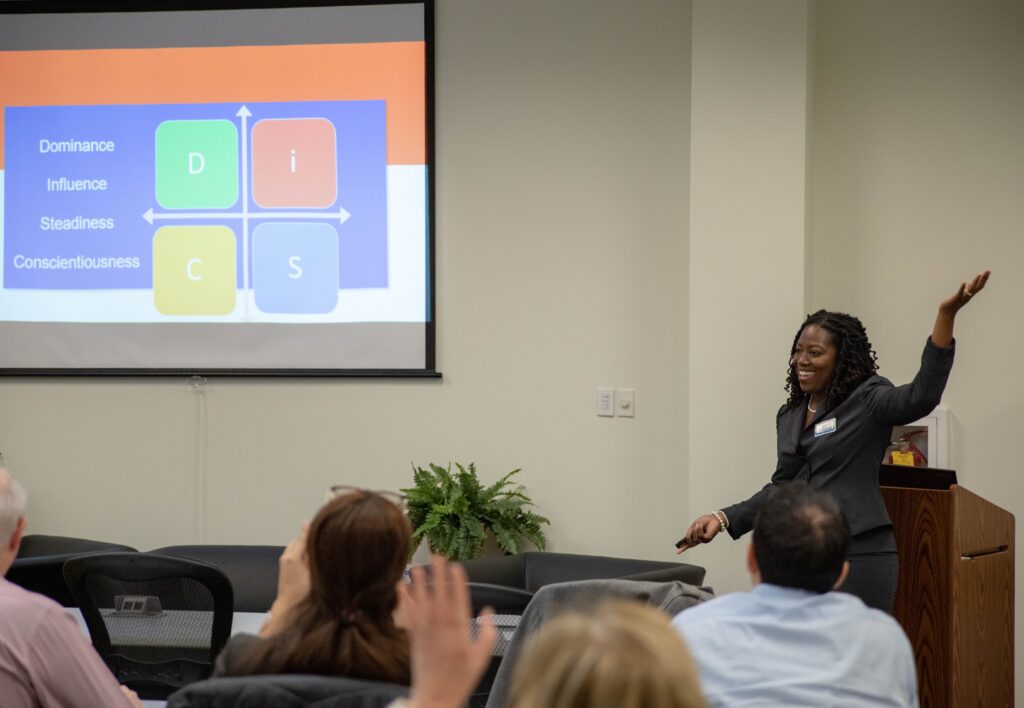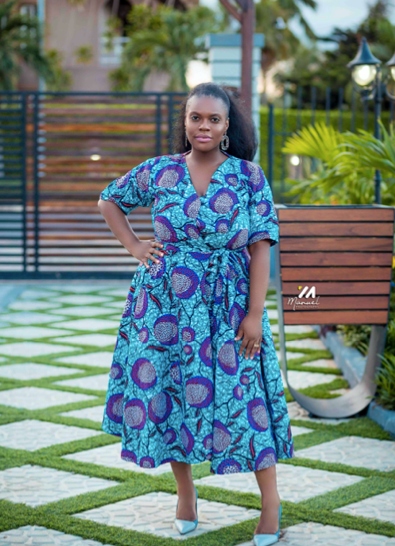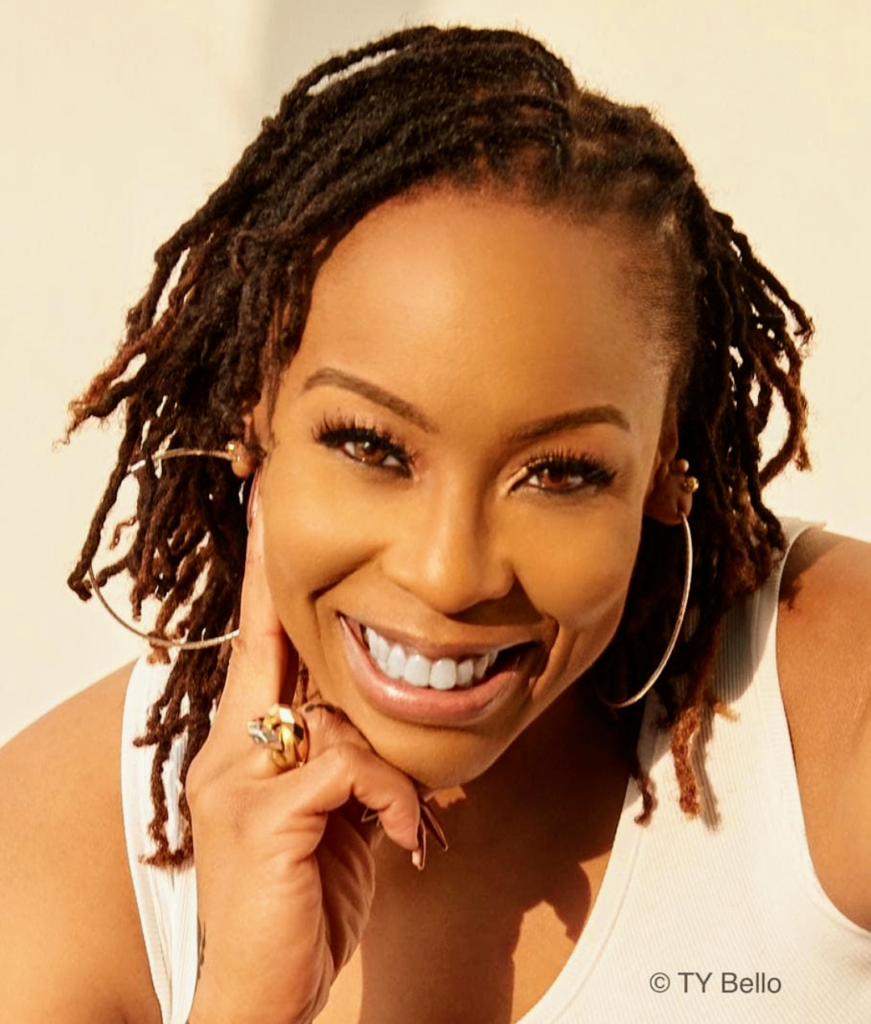
Communication is a key factor in bridging the gap among stakeholders with respect to Diaspora Engagement. In order to understand how critical this is, we are really pleased to speak to Monique Russell, Founder of Clear Communication Solutions, LLC.
She is also a Speaker, Consultant and an Executive Coach who is using her exceptional communication skills to bring out issues about how black people around the world can thoroughly connect with their identities.
Monique Russell was raised in The Bahamas and later moved to the United States. She is a successful Communication Skills Expert and a Thought Leader.
Monique comes from a family with a long line of Educators; however, she wanted to be a TV host growing up. This led her to start Public Speaking and Event Hosting at a very young age. She later went on to earn a Bachelor of Science in Broadcast Journalism, and eventually two Masters of Science degrees in Public Relations and Advertising.
In the journey of helping others to build confidence, she is a trained DiSC Facilitator and a Certified Life Coach. Monique has taught over 2000 adults around the globe on how to use communication skills to grow personal brands and businesses successfully. This year, she expanded to doing more work in Africa and within the African and Caribbean diaspora. This is where her passion is and her goal is to do more to help diaspora groups in all she does.
The “Bridge To U” Podcast – Objectives and Focus
The bi-weekly episodes of the Bridge To U podcast mainly focuses on guests who subscribe to black unity and solidarity worldwide sharing their awakening stories in their journey to embracing their identities. And so why was Monique inspired to start this podcast series?
According to her: “In the past, people have always told me to start a podcast, but I didn’t buy into that because I didn’t feel like starting something just because other people were saying and doing so. However, with my passion and mission towards African and Caribbean diaspora professionals, I felt starting a podcast would tie into the goals of who I wanted to serve and the message I wanted to communicate. I wanted to make sure that we provided new forms of education for black people worldwide so that not only could they begin to understand themselves from new angles, but also maximize the skills it takes to communicate and engage with each other to build bridges of culture all over the world. I understand that there is a lot of division in the world among different ethnic groups. I do not hold the vision of division because I understand that there is something greater. I often encounter people who do not believe in black division as well, and I would either have them as my clients or talk to them individually. From these encounters, I felt that I needed to highlight people who subscribe to black unity and have them tell their story of how they got to that place. For example, how did they become so open and understanding of black cultures all over the world, given that we’ve been conditioned through slavery, racism, and trauma to be divided? And so, anyone who has the ability to rise up from these myths and beliefs are people whose stories I want to tell so that all black people and cultures can learn from them.
My guests on the podcast are people who have gone through some transformational experience that helps them see other black groups differently.
Even in black communities, people tend to see each other cultural group differently. In my own life for example, I didn’t meet my dad until I was eight years old. I was living in The Bahamas at the time, but met him in the United States. I didn’t embrace my Nigerian heritage initially. It took time to step into that awareness and to fully embrace who I was. I feel like people in the diaspora who experience a disconnect towards their African roots, experience a level of disconnection from themselves. When people learn about themselves, their history, why they think the way they do, why they believe what they believe, it helps to explore internalized oppression.
External oppression exists and is often internalized. For example, when we don’t like our skin colour. Skin bleaching is huge in Africa and the Caribbean and it is a classic case of internalizing racism and oppression against our own selves. When we go through that process of embracing everything that we are, then our eyes change and we don’t see superior/inferior variations anymore. The podcast airs twice a month and typically I look for guests who demonstrate this mindset. I identify people based on what we can see either from their content posting, the way they collaborate with other people, the type of responses they share, or even interests in other black groups, for example what is happening in Nigeria now, Panama, Seychelles etc. When people become aware of such happenings and show support by sharing, commenting about them on Social Media and so on, it shows that their mindset towards other black groups is expansive and not limited.
I’ve had people reach out to say that they want to be a guest on my show. I then look at what messages they share and if it typically falls into a prescriptive, or outside looking in approach, it becomes problematic for me. Further, if we talk and they are unable to describe what influenced their mindset, we have not gone deep enough. It is therefore very typical that people can identify congruency in my guests by observing the way they show up, the messages they share, and how they interact with others.”
Do you have any plans to take “Bridge To U” to any mainstream media channels?
“For someone who wanted to be a TV host once upon a time, a TV show would be a great idea! However no, because I don’t think people watch mainstream TV as much anymore. I do some video recordings as I plan to put video content on YouTube eventually with the approval of the guests. Netflix and other streaming services are something we’re aiming for as we get bigger. Radio is also beneficial because it gives a lot of exposure as lots of people listen to it. Since this podcast is so niche, customized and specialized, I definitely want more exposure in terms of my ultimate goal for media.
Also, I want to see the content of this show used in entrepreneurial hubs in the Caribbean and Africa. I want this show to be required listening and for people to have discussions around the topics, especially business people and entrepreneurs on the continent. This show should be in every accelerator, incubator, and every university that has a business/entrepreneur centre. The show is more of a teaching-training-business and cultural growth podcast, and every black institution that focuses on business development and women empowerment should be involved. This is where I want the show to go.”

Using communication to bridge the Diaspora Engagement gap
“Having a digital presence is critical. Everyone is online, and anybody who is not online is going to be online in the next 10-20 years. Skills need to be provided around what it means to have a digital presence, and also what it means to be digitally relevant. You can put up a website for example, and still not have clarity. You need to have training on how to distill your message for what you do, and how you do it in a very clear and consistent way. I always say less is more. Too many websites have too much content, where people don’t read but just scroll through. The main message needs to get to people quickly.
For the diaspora organisations, I feel what we can do more is to provide the skills development around how to communicate their messages effectively. We can do this through training around the importance of digital relevance and presence. Currently, I am working on some courses in my online school. The skills of communication are so essential and once those skills are there, we also need to have skillsets around how to do business, how to be timely, and how to work with high context cultures and low context cultures because everyone’s culture is different. We also need to teach how to have integrity in business, and just how to be a professional business person. Those are the skills we need to empower diaspora organisations with.”
About Clear Communication Solutions
“Clear Communication Solutions, LLC is a Consulting firm I founded focusing on Public Speaking, Training, Coaching, Leadership Development and building all round communication skills globally. I’ve done a lot of corporate work, but currently I am more women in business and women in leadership focused, especially those that are mothers. A recent report suggested that because of the COVID-19 pandemic a lot of women in leadership roles in corporate spaces are looking for alternative solutions. Most are overwhelmed and burning out with the added responsibilities of child rearing and working at home. I am also working on my upcoming book called ‘Intentional Motherhood’ which will be speaking about motherhood being an identity, and parenting skills based on love and not fear. It is a book that will help women to understand how motherhood identity is shaped and formed, and to realize that they are not their culture, trauma nor their past. Women will learn how the identity we hold influences how we parent, show up in business, and how without creating one for ourselves intentionally, we fall to the default of a societal motherhood identity. Being a woman is one thing, but then birthing yourself into the identity of a mother is an entirely different story.
Clear Communications Solutions offers confidence building skills communication and self-promotional skills for women and their teams. What my brand offers is group coaching for women. We currently run two programs. The first is” Likes to Loves” where with go through self-awareness, self-love, spirituality, and forgiveness before we get into teaching women to be Public Speakers. Secondly, “Rock the Mic” is for women who want to build their brands in corporate or business through Public Speaking. I normally get women who come to me who say they need Public Speaking, but sometimes they may not be quite ready so we have to go back to ground zero to improve confidence, emotional intelligence and so on as we help them to build their presence and to be digitally relevant as well.”

What do you do when you are less busy; that is if you get free time?
“I actually have lots of free time because I am intentional about it! In my nature I like to be busy, and I always have so many ideas. Regardless of the back to back work calls, coaching and other things I love to do, I am intentional about allocating some free time. I love to read, sit in the sun just gazing, play tennis, being around nature, and going for walks in the park. I love to travel too, and I am open to travel wherever!”
To listen to the “Bridge To U” Podcast series, kindly visit: https://clearcommunicationsolutions.com/introducing-bridge-to-u-podcast/
To find out more about Monique and Clear Communication Solutions, kindly visit: https://clearcommunicationsolutions.com

Images Attribution: Monique Russell
Additional Information: Monique Russell
Interview by: Theresa R. Fianko
Share this:
RELATED STORIES



